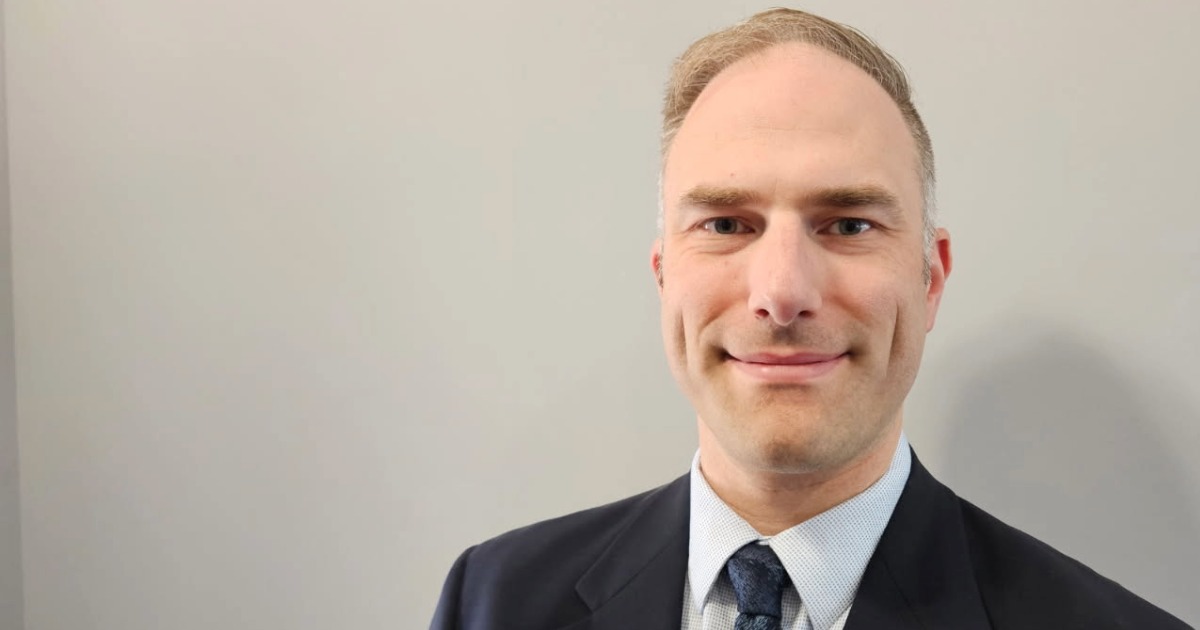
Innovaccer's new digital front door and provider readmissions AI
Innovaccer released a healthcare call center platform featuring AI agents for prebuilt healthcare workflows, which work to improve patient access, the company said.
The AI-powered digital front door, Comet, handles routine tasks like scheduling and eligibility checks to reduce call volumes and improve patient access. Its agents and co-pilots are accessible through a unified interface that provides staff with real-time insights, automates post-call documentation, generates call summaries and more.
One example is its Referral AI Copilot, which automates the intake and insurance verification processes to speed up appointment scheduling and reduce the risks of lost revenue.
Comet is built "to tackle the chaos of today's call centers head-on" with speed, empathy and precision, according to Abhinav Shashank, Innovaccer cofounder and CEO. "It's the beginning of a new era in healthcare access, an intelligent front door where every interaction is valued and served and every patient feels seen," he said in a statement.
Early research showed the platform reducing average call times by upward of 38%. According to internal assessments, providers are using Comet to automate more than 70% of interactions. With built-in electronic health record integrations, customers in the U.S. could deploy the platform in under 90 days, the company said.
Beyond access, Innovaccer also said on July 21 that it is rolling out AI tools that could help insulate hospitals against the slippery slope of federal funding cuts.
Because uncompensated care accounts for 2%-6% of hospital operating expenses, the company made its care management co-pilot and coordinating care agents generally available. Enhancements for advanced predictive modeling are accessible to those with early access.
More than 200 hospitals are expected to face Hospital Readmissions Reduction Program penalties of more than 1% of their Medicare revenue in 2025, with the amount likely to exceed $1 million per hospital, the company said in a statement.
Patients run the risk of being delayed due to beds being occupied by avoidable readmissions, the company said. Innovaccer's readmissions management AI aims to help manage the financial impact of readmissions among Medicare, Medicaid or uninsured populations.
"Innovaccer helped us prepare for MSSP participation by ensuring our Care Navigators have easy access to the right data and protocols to make timely and reliable clinical decisions," Dr. Mary Kim, Adventist Healthcare's CMO and vice president of its Population Health Physician Enterprise, said in the statement.
Experity AI rolls out urgent care assistant
Experity's new HIPAA-compliant Care Agent gives urgent care patients more control over their healthcare journey through AI, data and analytics. It uses mobile messaging for registration and web chat for more sensitive interactions, like triage.
In addition to handling tasks like discharge notes and supporting payment collections, Care Agent's skills architecture can be customized to a clinic's specific needs and white-labeled. Patients interact directly with the clinic's brand throughout their care journey, from pre-visit preparation to post-visit follow-ups.
The company, which said it serves 22 of the 25 largest enterprise urgent care organizations in the U.S., developed the agent for convenience and data security. It integrates with EHR and practice management systems to increase operational efficiencies, create new revenue streams and enhance patient experiences.
"To attract and retain patients, urgent care organizations must focus on personalizing engagement and guiding individuals toward customized health outcomes," Adrian Agostini, Experity chief revenue officer, said in a statement. "Today’s generation of consumers want to be actively involved in addressing their health needs, and Experity Care Agent literally puts urgent care in the palm of their hand."
SimiTree AI could speed home health chart reviews
Home health agencies are facing rising documentation demands, staffing shortages, increasing compliance pressures and proposed Medicare reimbursement cuts in 2026. Thus, SimiTree launched proprietary AI to improve clinical documentation review, coding accuracy and operational efficiency, the company said in a statement.
The AI identifies ICD‑10 primary and comorbidity codes, optimizes OASIS scoring and flags inconsistencies before charts are finalized to reduce denials and boost first‑pass acceptance rates.
SimiTree Assessment Review AI, or SARA, "provides agencies with a scalable, intelligent solution that reduces administrative burden, accelerates turnaround times and delivers real-time coding and OASIS insights that drive better results," David Berman, SimiTree COO, explained in the announcement.
Zelis streamlines payer data insights
To improve revenue cycle management, Zelis has launched Claims Insights powered by Rivet's financial platform. It serves providers real-time, actionable intelligence through a single portal, helping them visualize and act on payment data from more than 550 payers, the company said in a statement.
By breaking down the root causes of denied claims, analyzing accounts receivable trends and tracking payments, providers can take steps to prevent future denials and underpayments, it added.
Datavant buys Aetion to improve data privacy
Earlier this month, Datavant officially acquired Aetion after announcing its intent in May. The combined company plans to deliver scalable insights from across the entire clinical and commercial lifecycle, making it easier for healthcare and other organizations to determine which treatments are working, for whom and at what cost.
Arnaub Chatterjee, Datavant president and GM of life sciences, told MobiHealthNews that once the deal closed, the company was going to create a better privacy and de-identification experience.
"And one of the big areas is Aetion brings a really robust and automated privacy engine that we think we can put right on top of our privacy engine as well as our expert-based team, and that'll turn around these privacy assessments in days," he said.
Symplr buys staffing AI to optimize workforces
Earlier this month, symplr acquired Smart Square scheduling software from AMN Healthcare, and together the two formed a commercial partnership, they said. The deal integrates the company's nurse and staff scheduling with symplr's existing timekeeping systems.
"Healthcare organizations are navigating unprecedented workforce complexity," said Cary Grace, AMN Healthcare's president and CEO. "This deal advances our focus on workforce planning, analytics and AI with our WorkWise platform, while seamlessly integrating with our customers' scheduling and operational tools through strategic technology partnerships like Symplr," she said in the announcement.
Palo Alto Networks incorporates Protect AI security tech
By integrating Protect AI's security technology and its experts, Palo Alto Networks' AI security platform brings together model scanning, posture management, AI red teaming, runtime protection and AI agent security, the company said in a statement.
Healthcare and businesses in other sectors are expected to benefit from the added security posture – from AI development through runtime, the company said.
Protect AI CEO Ian Swanson will join Palo Alto Networks as the vice president of product for Prisma AIRS.
"Joining forces with Palo Alto Networks propels our team and AI security platform into a new era of scale and impact," he said in the statement.
Waystar integrates Iodine's clinical intelligence
Waystar said it now owns Iodine Software. It will leverage the early-stage company's AI capabilities to improve the integrity of clinical documentation, identify prebill revenue leakage and more.
"We are committed to transforming healthcare through harnessing the power of AI to tackle the most critical challenges in healthcare payments," Matt Hawkins, Waystar CEO, said in the announcement.
Sellers Dorsey buys DignifiHealth tech
Sellers Dorsey has announced it will acquire DignifiHealth, which has clients in eight states, including hospitals, Federally Qualified Health Centers, Accountable Care Organizations and other healthcare organizations.
Sellers Dorsey said in the announcement the population health and financial performance company does not have any client turnover, demonstrating its strong and attractive track record.
The healthcare impact strategy firm plans to combine DignifiHealth's analytics capabilities with the firm's subject matter expertise to improve its understanding of patient and population needs across all payer types and enhance the quality of care and patient experiences.
"This acquisition is a direct response to what our clients have told us they need," Kevin Seabaugh, Sellers Dorsey CEO, said in a statement. "It's an investment in shaping the future of healthcare by supporting smarter decisions and better health outcomes."
Zoom adds real-time compliance monitoring
Zoom said earlier this month that it is integrating real-time transcription, sentiment detection and instant follow-up tools as part of its Real-Time Meeting Stream rollout.
The new tools will enable developers to securely stream per-participant audio and video directly from Zoom meetings to build AI-first applications without the disruption of a visible bot in a meeting.
In healthcare, RTMS will help automate workflows by monitoring compliance and updating records in real time to make meetings more efficient. A company spokesperson confirmed by email to Healthcare IT News that the feature will be available during provider-patient telehealth visits.
Samsung to launch AI health coach
Following its acquisition of Xealth, Samsung said it will launch an AI health coach beta in the U.S. by the end of 2025, according to The Korea Economic Daily.
The AI health coach chatbot in the Samsung Health application can assist in incorporating doctors' prescriptions and medical advice into their daily routines, Park Hun-soo, Samsung's Mobile eXperience division digital health team chief, reportedly said in the article.
The new feature in the application analyzes a user's health data collected by its wearables, which allows them to access their health records, manage medications and track daily food intake.
"We’ll build an environment where hospitals and healthcare systems are seamlessly connected through apps and wearable devices," Park reportedly said during a press conference in New York on July 11.
Of note, Garmin Health is now available on Android and can sync with Google Health Connect, according to a July 8 article in Gadgets and Wearables.
Andrea Fox is senior editor of Healthcare IT News.
Email: afox@himss.org
Healthcare IT News is a HIMSS Media publication.


